Here's how many packets a tissue seller has to sell to survive in Singapore


I was waiting for my friend at a shopping mall entrance just a few days ago.
From the corner of my eye, I witnessed an elderly man crouching in the midst of the busy crowd.
With his contorted back, he tried to capture the attention of unsuspecting passers-by by waving his Beautex tissue packets.
His presence is almost inconspicuous, with most people walking by as if he didn’t exist.
Here’s the grim reality of one of the invisible groups of Singapore – the tissue packet sellers.
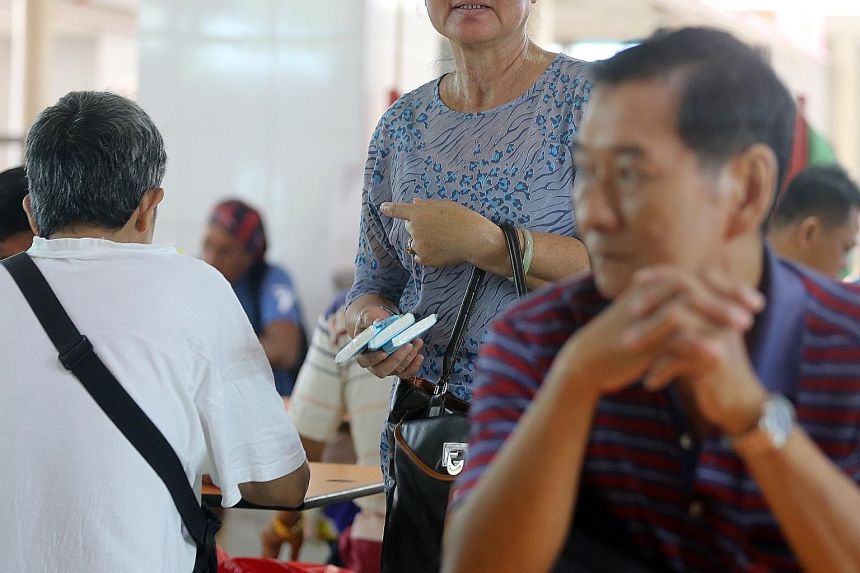
We commonly spot them roaming around coffee shops and food centres.
Hobbling around with plastic bags filled with tissue packets, these sellers usually seem unfazed when receiving yet another rejection.
And for those who are positioned at areas close to bus stops and MRT stations, they are usually tucked at a quiet corner with their trolleys, corners that passers-by would seek to avoid.
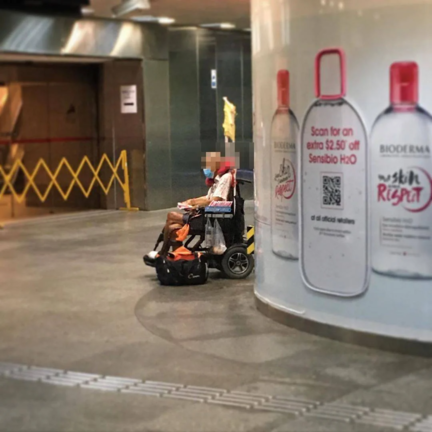
These tissue uncles and aunties go through countless rejections on a daily basis in order to survive and make ends meet.
Some have turned to this trade after suffering from life-altering situations which have caused disabilities.
Others have started due to a loss of a job, or simply wanted to do something to occupy their time.
Over the years, some of these sellers have made news due to questionable business tactics, turning it into a topic of controversy and creating scepticism in this trade.
There has also been news of the rise in competition in this market, where able-bodied foreigners have also joined in the sale of tissue packets.
These situations have undoubtedly affected the businesses of these tissue sellers, making sales a little harder these days.
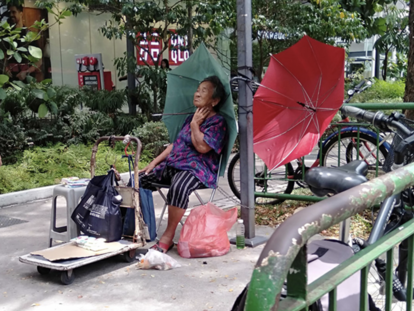
It is illegal for these sellers to go around hawking from table to table without a license.
Under the Street Hawking Scheme, these sellers are required to obtain street hawking licences to sell approved items, which includes tissue paper.
These licenses cost $10 a month, which translates to $120 a year.
Even with this license, these sellers can only peddle at fixed locations in order not to adversely affect residents around the vicinity.
Which is why we usually see most of these tissue sellers on the move, partly to avoid being caught since they are technically breaking the law.
Those who found illegal hawking may have their goods seized and be fined from $300 to $500.
A pretty big sum to pay especially if you’re struggling to make ends meet.
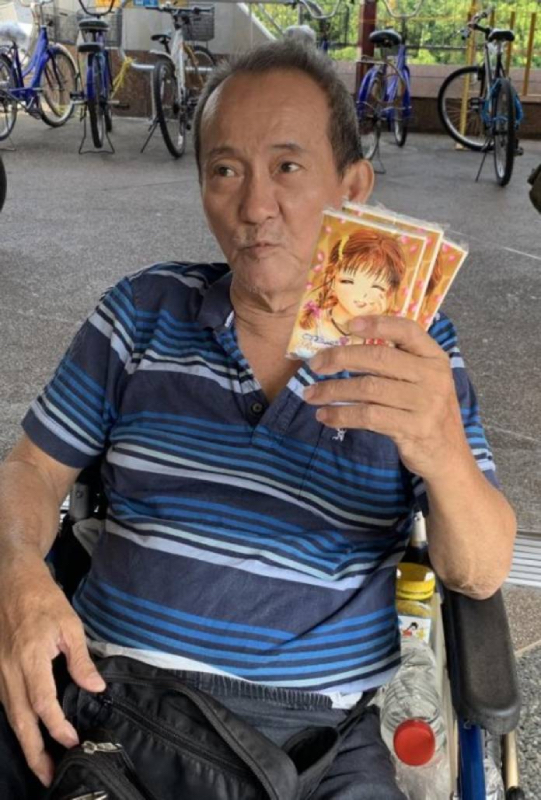
There were rumours that these sellers could earn up to $400 a day.
Is that really possible?
That got me curious as to how much they could possibly earn in a day.
With different sellers coming up with different prices, the most common one that we hear would be 3 packets for $1.
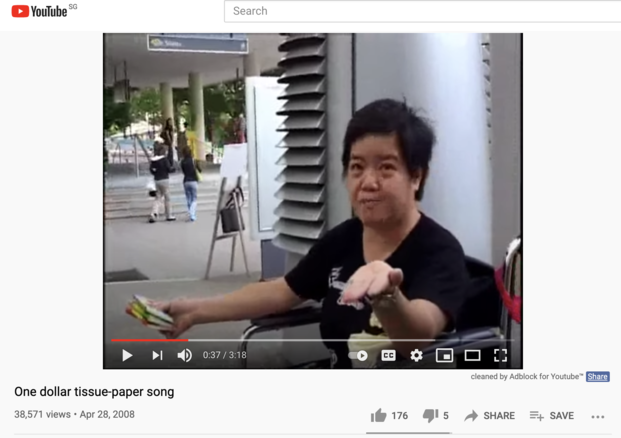
In fact, there’s a popular ‘Tissue Paper One Dollar‘ jingle that previously caught the hearts of netizens (there are even remixed versions!).
This means that each packet is sold for $0.33.
Let’s find out how much its cost price is.
(We’ll pick Beautex since it seems quite popular among tissue sellers…)
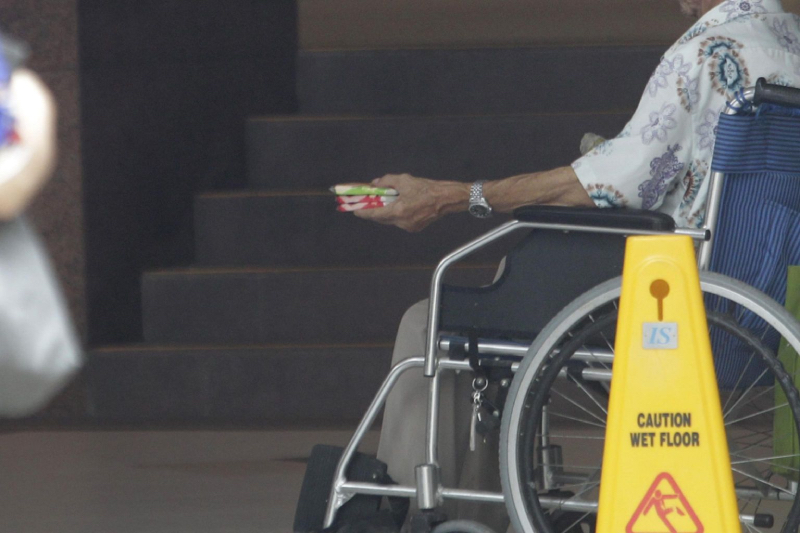
A quick search on the Internet showed that a typical bundle of 12 packets would cost $1.10.
Which translates to $0.0916 per packet.
This means a profit of $0.2384 from the sale of one packet, or $0.7152 from each bundle of 3.
Assuming that he/she can indeed earn $400 a day…
| Assumption | |
| Total profit | $400 |
| Working hours | 10 hours/day |
| Profit per hour | $40 |
| Number of sales (per hour) | $40/$0.7152 = 55.9 |
This means getting a sale almost every minute, for 10 hours straight with no break in between.
Not the most feasible pace.
Now, let’s try to assume something slightly more practical.
| Assumption | |
| Number of sales (per hour) | 12 (assuming 1 sale every 5 minutes) |
| Working hours | 10 hours/day |
| Profit per hour | $8.58 |
| Total profit | $85.80 |
It probably seems like a pretty decent amount as compared to our cardboard aunties and uncles.
[[nid:435669]]
That being said, various factors are at play.
For instance, the number of sales could possibly be much lesser for the sellers can only be stationed at one spot instead of moving around.
Or working for shorter hours, especially for individuals with limited physical capabiities.
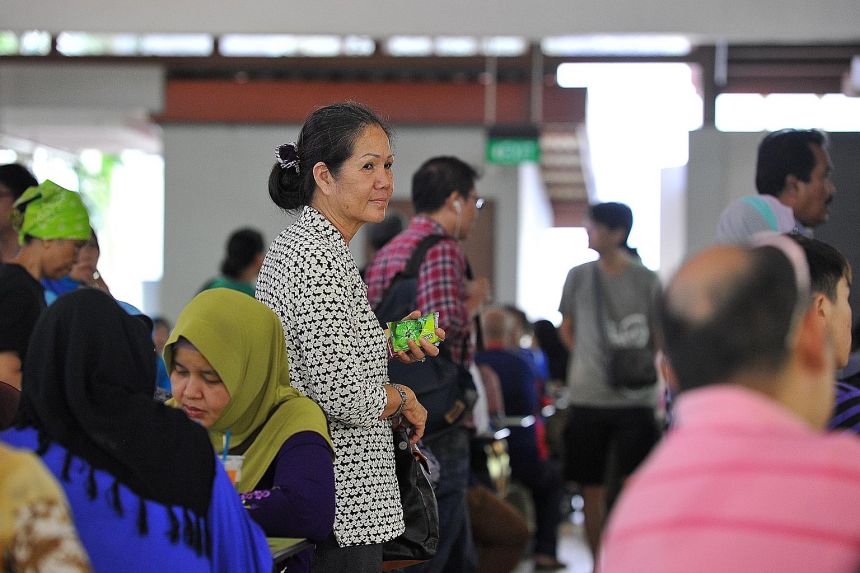
According to a 2019 study done by Lee Kuan Yew School of Public Policy, here’s how much a household needs to meet their basic needs:
| Demographic of household | How much you need for basic needs |
| Single elderly household | $1,379 per month |
| Coupled elderly household | $2,351 per month |
| Single person (aged 55 - 64 years old) |
$1,721 per month |
This is based on the assumption that the individual is healthy.
Otherwise, healthcare costs will be even higher which translate to even higher living costs.
Assuming our tissue seller uncle or auntie is single and between 55 to 64:
| Sales required by tissue seller | |
| Working days (per week) | 6 days |
| Working days (per month) | ~26 days |
| Monthly income required | $1,721 |
| Income required (per day) | $66.19 |
| No. of sales required (per day) | 92.5 |
An average tissue seller has to make about 93 sales a day and work 6 days a week to earn an income to meet their basic needs.
For the low-income elderly, there is an extensive range of support that is provided by the government and external organisations.
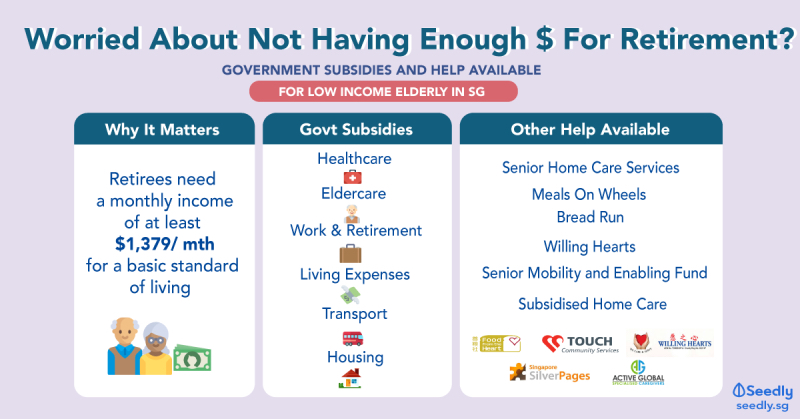
Here are some schemes that are available according to categories:
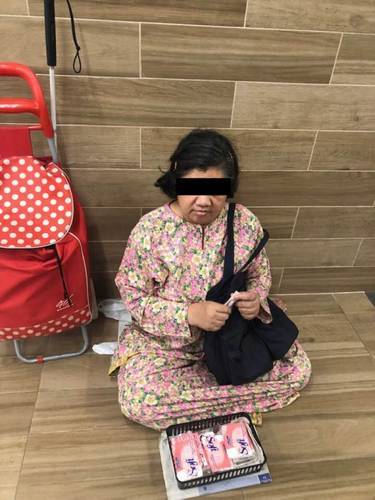
Social media has become a ubiquitous part of our lives.
In my opinion, one of the best things that came out of it is the power it has to raise awareness on issues that would otherwise be swept under the carpet.
Over the years, many kind-hearted individuals have shone a light on the plight of some of these tissue uncles and aunties through the use of social media.
This has allowed relevant agencies to take notice, conduct checks and provide necessary assistance whenever possible.
That being said, social media is also often a double-edged sword.
[[nid:445973]]
This can be seen from cases where unnecessary attention has been garnered for individuals based on false information.
In such situations, acts borne out of kindness could result in a reverse effect instead.
Therefore, if we do encounter individuals who are in need of help, one of the things we could do is to start by having a chat with them to understand their situation better.
Different people have different circumstances, and some of them could be doing this just to keep active and pass time.
And if they do require assistance, one way is to link them up to relevant agencies which might be able to provide them with long-term help.
If not, a simple purchase of basic necessities such as a packet of food would definitely be appreciated as well!
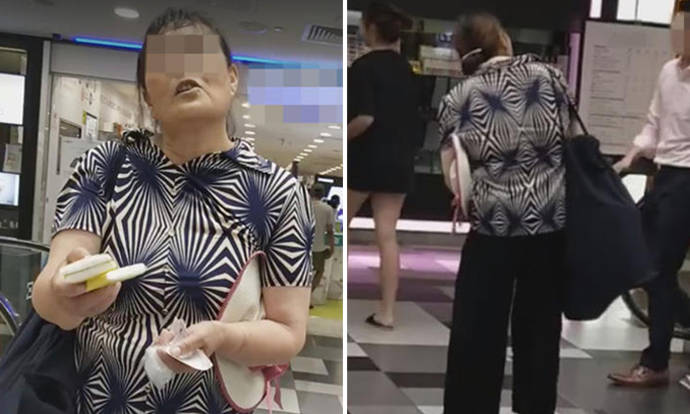
While some sellers might have chosen this trade just to keep themselves active, the reality is that most of them do it because they do not have a choice.
It’s scary to think that one day we might all be irrelevant to society and be met with a similar fate as these old folks.
This is a grim reminder that any complacency on our side could possibly render our skills useless in this fast-moving society.
Personal development and self-upgrading is no longer a choice, but more of a necessity in today’s context.
This has also reminded us of the importance of retirement planning, and how it could potentially help us avoid such situations when we turn old and grey.
And also how a simple acknowledgement, or just spending a dollar every now and then is a small sum to pay which could possibly make someone’s day.
This article was first published in Seedly.